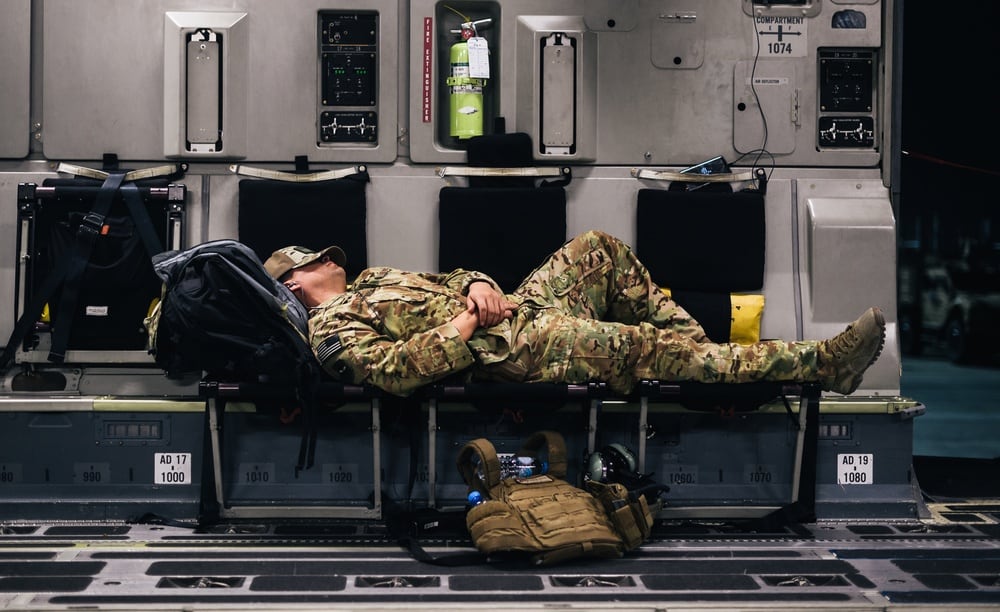Suboptimal rooming arrangements at Al Udeid Air Base in Qatar affected troops’ sleep and safety as the U.S. withdrawal from Afghanistan ramped up in the first half of 2021 — an effort that heavily relied on airmen traveling through the Persian Gulf nation, according to an Air Force Times review of airmen’s safety reports.
Nearly 30 Airman Safety Action Program reports filed between Jan. 17 and Aug. 17 raised issues of poor sleep, fatigue impacting job performance, possible coronavirus exposure and other safety concerns stemming from their dorm assignments.
Airmen can use ASAP to document any incident that falls short of a formal safety report, from misplaced gear to hypoxia to unsafe maneuvers. Air Force Times obtained copies of nearly 100 ASAP submissions related to air operations in fiscal 2021 via the Freedom of Information Act.
RELATED
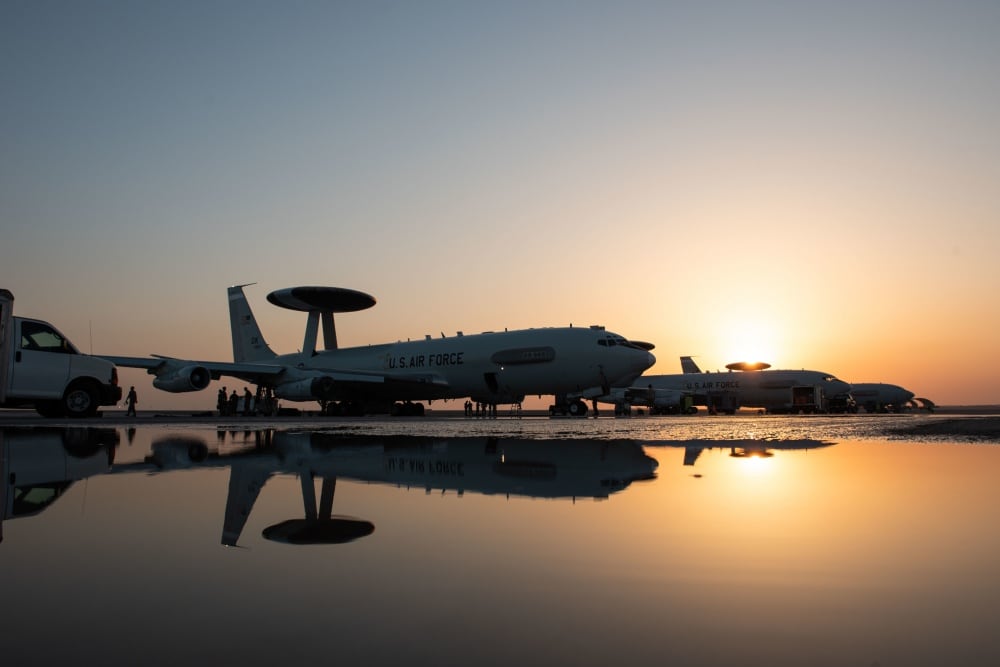
Work, family and other responsibilities or habits often get in the way of a good night’s sleep. Mission demands cut into rest, too, especially when adapting to a deployment.
Despite the Air Force’s efforts to address the problem, aircrews still see fatigue as a serious flight safety problem.
Crews across multiple airframes, from the C-17 and KC-135 to other unnamed combat and mobility assets, lodged complaints about Al Udeid. Those reports made up about one-third of the ASAPs filed in fiscal 2021, with three specifically calling out the 379th Air Expeditionary Wing.
Crew rest problems worldwide comprised about half of the reports sent to Air Force Times.
One report from Al Udeid raised concerns about “no-go,” or sleeping pills, used to let airmen sleep during the day for nighttime flying or to regulate interrupted sleep. A C-17 crew member bemoaned their roommate’s loud music. Others pointed to confusing or dishonest methods of tracking fatigue.
Two reports, dated March 20 and March 21, describe sorties that were canceled because an airman was overtired and ill. It’s unclear whether the submissions are referencing the same incident.
The March 20 report focused on an airman who worked under Air Combat Command and lived with another airman from a different crew. The two were operating on schedules six hours apart.
After waking up from a restless night, the aircraft commander decided to begin working through his pre-flight duties and hoped he’d feel better. The opposite happened.
He grew “more tired, lethargic, foggy and slightly nauseated,” the ASAP report said, and “felt his current health status might continue to decline throughout the day.”
“Especially with the forecasted poor weather, the crew would have to fight for the duration of the flight,” the report said.
So, he leveled with his crew about the risks of the nine-and-a-half-hour sortie and tapped out of the mission.
The next day, an ACC airman complained: “I have over 300 combat missions in the [area]. This is the first time I’ve ever had to cancel a mission due to fatigue.”
At issue was the airman’s copilot, whose roommate was operating on a different work schedule that required getting ready while the copilot was asleep. The copilot had been woken up three days in a row, leaving him with little rest ahead of his combat sortie.
RELATED
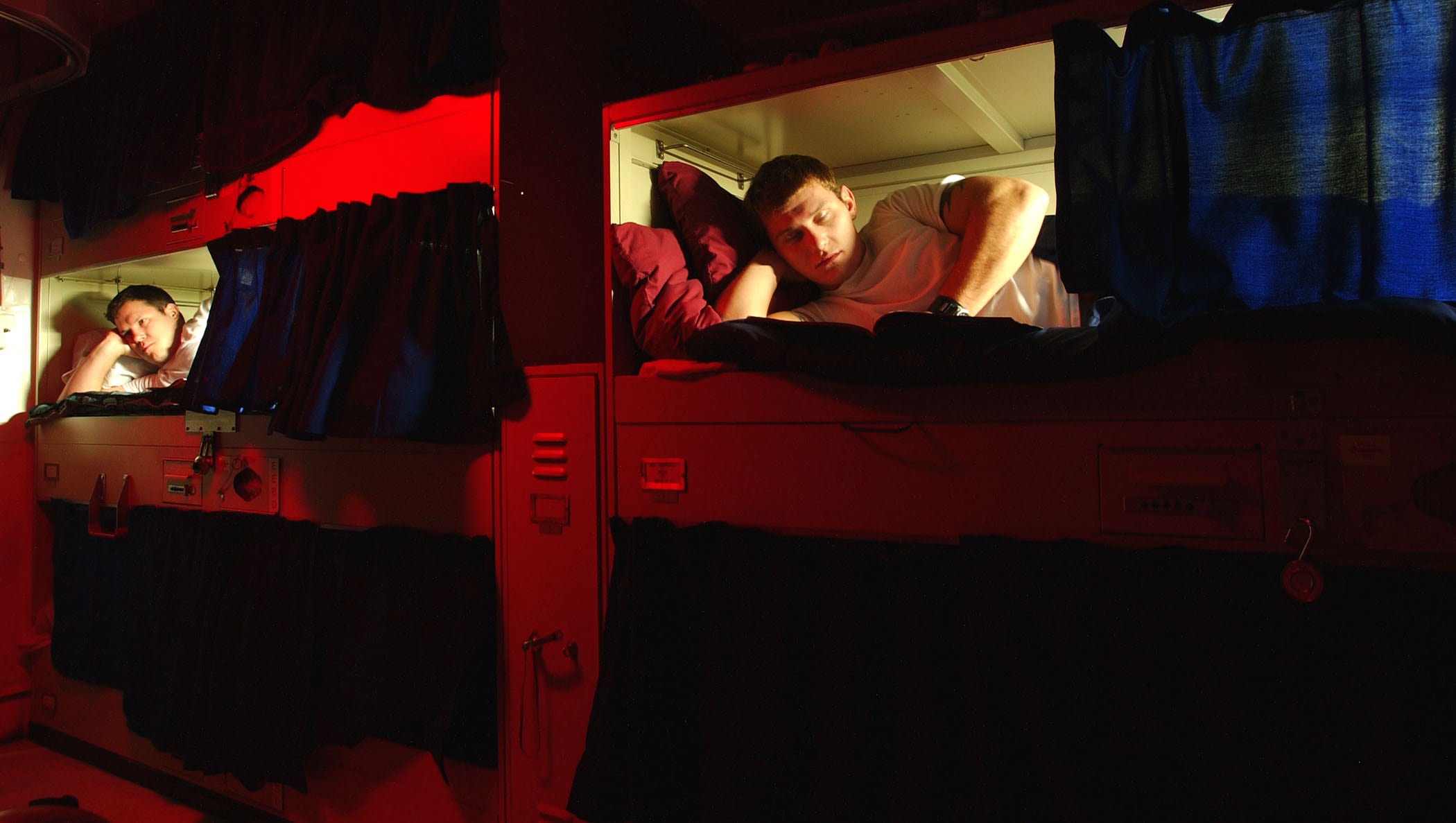
“This morning before we were alerted to fly, I made the decision that my copilot was not safe to fly,” the airman said in a March 21 report. “He slept about three hours, being unable to fall back asleep after his roommate woke him up getting [ready] for work. … There are plenty of empty rooms available.”
The arrangement strained relations between members of different services, too. When a soldier and an airman were told to room together, a Feb. 15 report said, the soldier’s 18-hour workdays constantly interrupted the airman’s sleep.
The report added that the soldier worked closely with Al Udeid’s Qatari hosts, increasing the risk of bringing COVID-19 back to the room. The airman asked to move himself or his roommate to a different dorm, but was denied by the local support squadron. An operational squadron commander later overrode that decision and changed the airman’s room assignment.
A response to the March 20 report noted that safety staff was working with wing, group and squadron leadership to address airmen’s concerns and change the rules. Al Udeid is overhauling its lodging process to let flying units assign housing for their own personnel, rather than going through a centralized office.
Still, “some disturbance is inevitable” at one of the busiest air warfare hubs in U.S. Central Command, a spokesperson for the 379th Air Expeditionary Wing told Air Force Times.
RELATED
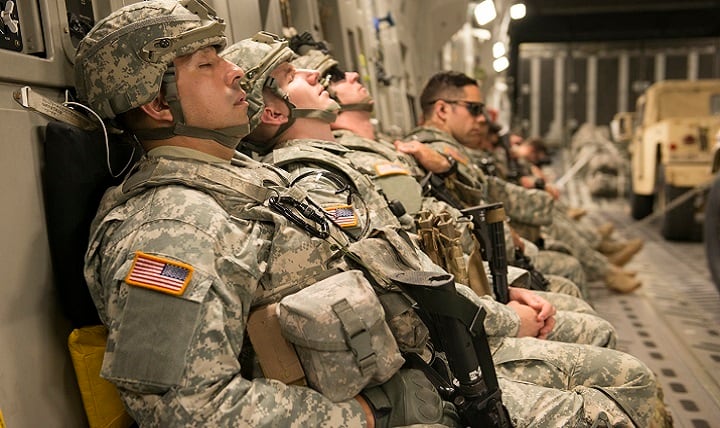
“Crew rest requirements are taken seriously with the established lodging rules on installation,” Capt. Lauren Woods said in a Nov. 19 email. “Aircrew are lodged away from significant noise and light pollutants, and transient aircrew are given dedicated lodging facilities to avoid additional interruptions from mixing crews. Problematic roommate pairings are handled at the lowest level first and up-channeled if issues persist.”
All ASAP reports from fiscal 2021 were reviewed and closed out, Woods said, without any noticeable trends across the complaints.
“During the Aug. 15-Sept. 1 Afghanistan noncombatant evacuation operations on Al Udeid Air Base, the unprecedented level of need on the installation did result in reshuffling of personnel lodging to make more space available,” she said. “There were no known instances of this directly resulting in safety flight calls during that period.”
However, only one ASAP report provided by the Air Force Safety Center — dated Aug. 17 — fell into that chaotic period at the end of August.
Sleep deprivation is a chronic problem plaguing the armed forces, sometimes with deadly consequences.
Human error causes more than three-quarters of aviation accidents, Lt. Col. Dara Regn, internal medicine branch chief at the Air Force School of Aerospace Medicine, said in 2019. Of those, as many as 20 percent are caused by pilot fatigue.
RELATED
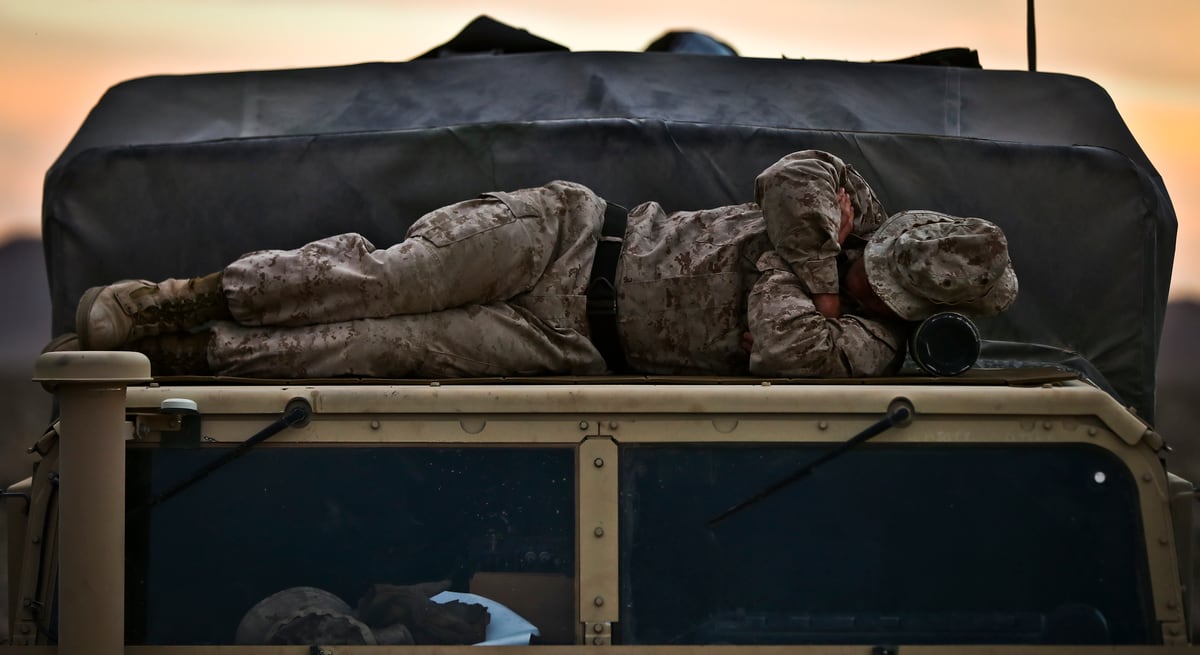
An Air Force study published Oct. 1 found that despite using mission planning software to game out sleep schedules, real-life rest often doesn’t match what an algorithm wants.
That means crews are generally less ready for missions than predicted, the study said, and the Air Force could be underestimating the safety, performance and health risks of poor sleep.
“This is completely unacceptable and avoidable,” the anonymous author of the March 21 ASAP report wrote. “It’s embarrassing that it’s come to this.”
Rachel Cohen is the editor of Air Force Times. She joined the publication as its senior reporter in March 2021. Her work has appeared in the Washington Post, the Frederick News-Post (Md.), Air and Space Forces Magazine, Inside Defense, Inside Health Policy and elsewhere.
